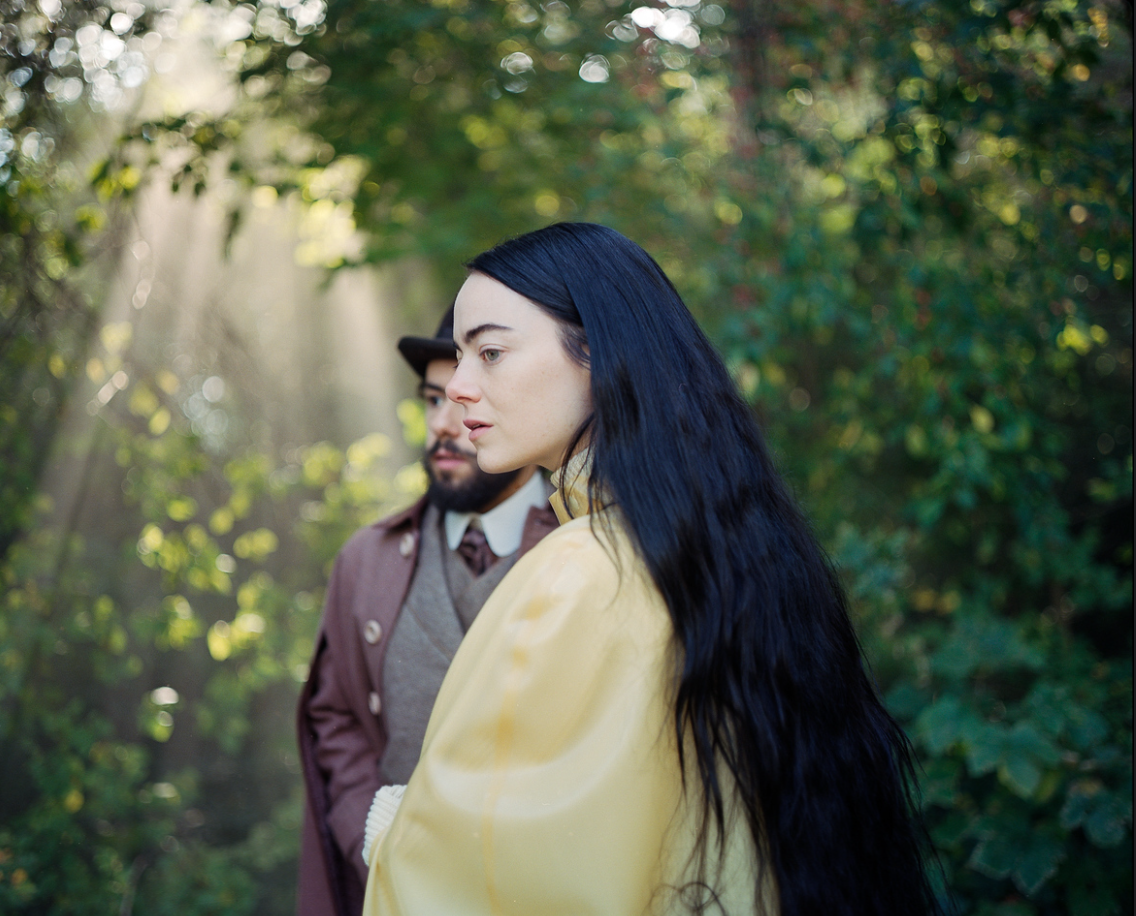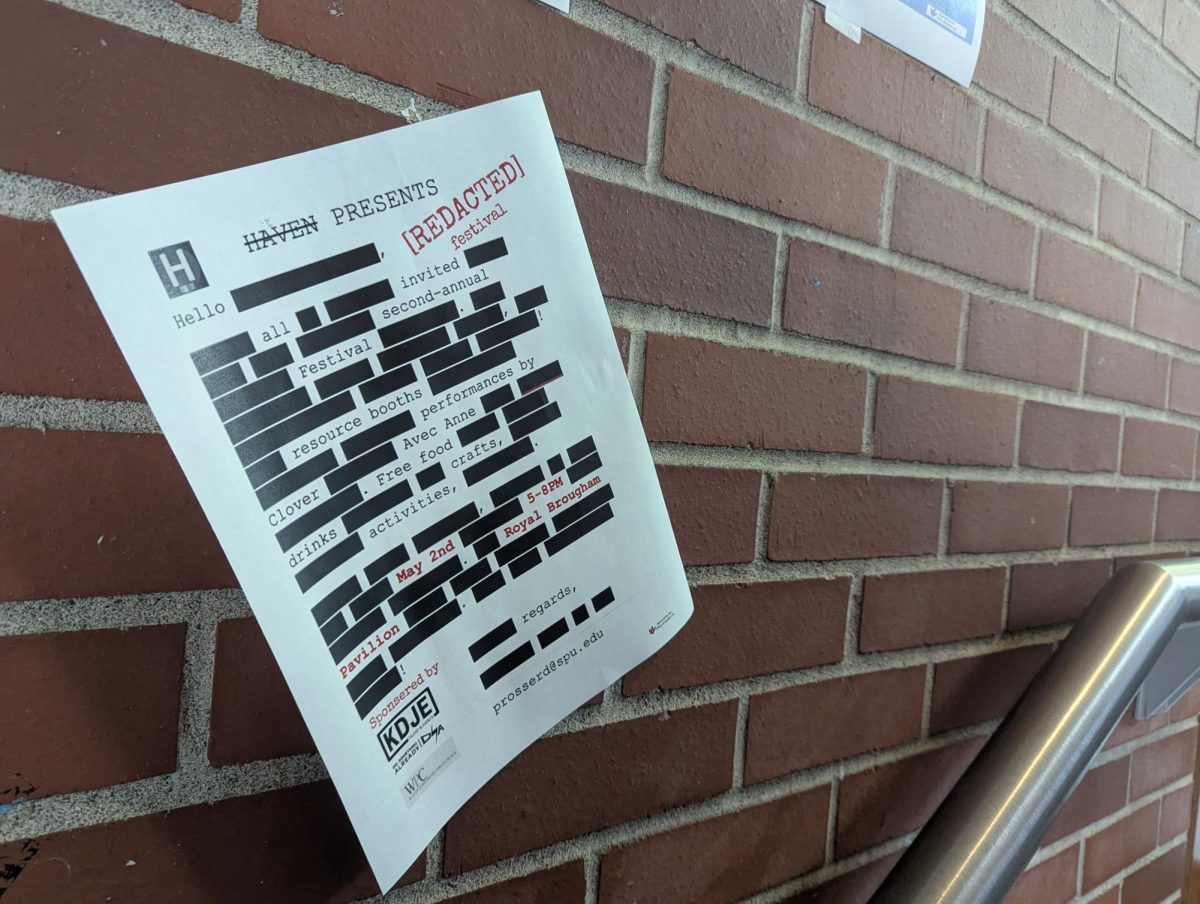
★★★★☆ (4.0 stars)
Lights slowly brighten, the crinkle of empty popcorn bags fills the otherwise silent room, and an older woman’s voice rings out.
“Makes me want to go out and be a whore real bad. Well, I was a child of the ‘70s it’s not like I didn’t have my fun-” a fitting response to a film about being a shameless woman.
Exiting the surreal world of Yorgo Lanthinmos’s “Poor Things” is a beautiful, hopeful departure; to be immediately welcomed back to the real world with a proud declaration of promiscuity is to experience this story in its truest form.
Director Yorgos Lanthimos and actress Emma Stone reunited for their third project together with “Poor Things,” adapted from Alasdair Gray’s 1992 novel of the same name. The fantastical Frankenstein-esque story follows Bella Baxter, a woman recently reanimated by mad scientist Dr. Godwin Baxter (Willem Dafoe) who swaps her brain with that of her unborn child.
Audiences follow Bella Baxter through a series of transformations as she gains consciousness and chooses to neglect the ways of “polite society.”
Dr. Baxter, after writing up a contract that would allow Bella to marry Max McCandel (Ramy Youssef) — a student of his who quickly fell in love with Bella after being brought on to observe her as a science project, under the condition that he agrees to keep her in his house forever — finds his plan backfiring. After discovering the terms of her proposal, Bella escapes and embarks on a journey with Duncan Wedderburn (Mark Ruffalo), an exciting ill-intentioned suitor.
During her travels, Bella enthusiastically explores her sexuality and the intricacies of both her relationships with herself and others while maintaining her refusal to conform to the world she’s met with.
As she encounters many different types of personalities, Bella finds mentorship in the older, often more brutally honest, women she comes by. Martha Van Kurtzroc (Hanna Schygulla), whom Bella befriends on a cruise amid an argument with Duncan, nourishes Bella’s desire for knowledge by lending books that open her up to the idea of philosophical liberation. Swiney (Kathryn Hunter), the madam of a brothel Bella finds herself working in, exposes Bella to both the good and bad that the power of being young and beautiful holds.
Both older women serve to contrast Bella’s inexperience and remind audiences that there is much more to life than just the youthful stories we’re often fed.
Casting director, Dixie Chassay, puts together an all-star, complimentary cast. Each performance, a showcase, putting on display arguably some of these actors’ best work. Ruffalo’s eccentric take on a pathetic villain leaves us mourning all the years of marvelous talent we missed out on due to his contracted reprise of a superhero, Dafoe’s character is a culmination of everything he’s meant to do as an actor and Youssef gives an astounding breakout film performance that lights up the screen.
What Emma Stone does with Bella Baxter felt almost maternal, fitting given that at all times Bella is both her mother and herself. Stone’s love of the character translates onto the screen, as not once did Bella’s sometimes awkward approach to development appear to be anything but pure.
While the men in her life often take her child-like sense of wonder and use it against her, to craft her in their image, Stone plays Bella’s exuberant naivete with hopeful ambition. Where characters often scoff at Bella, audiences embrace her in all her quirks and faults.
Bella’s defiance of social norms is set to the tune of Victorian times, but its song still rings true as the story themes remain incredibly modern. Where audiences still struggle to accept sex scenes as a meaningful aspect of art necessary for narrative storytelling, and discussions of female masturbation are still seldom found in mainstream conversations, Bella Baxter is very representative of the 21st-century woman learning to come into her own.
Bella is a monster learning to be a woman in a society that views the two almost interchangeably; to embrace the raw truth of what it means to be a woman is to be crass, to free oneself of ladylike expectations is to be unbecoming. Where there is no “winning” Bella finds content in just being.
If he had not yet, Lanthimos certainly reached auteur status with this borderline arthouse film.
Lanthimos does not fear being over-the-top and wildly unrealistic, something that has been missing in American films for far too long.
By using disorienting camera angles, deeply contrasted colors, flamboyant costumes and otherworldly sets, Lanthimos puts the audience in a perfect place of confusion. With a story rooted in questioning what the human experience should look like, playing against the standard expectations of reality was the smartest choice to further prove that to be human is to constantly adapt to a life full of foreign experiences.
Lanthimos creates a unique world that embraces everything right as it is, without the need to excessively question why each choice was made; the film is very intentional in its chaos.
The script is quite clever, weaving humor with seriousness in a sincere manner. The laughs aren’t meant to pull the audience out of the dramatic tone at hand, but rather to naturally guide them through it, as more often than not, in reality, humor sneaks itself in the most awkward of moments.
Like most, the movie was not without its faults; such as the questionable approach to the morality of the men (even the seemingly well-intentioned ones) in relation to how they treat Bella.
The subject of Bella’s having free will and learning what to do with it comes up frequently in conversations between Godwin and Bella’s many love interests, despite the fact that her free will was stripped from her the moment Godwin chose to give life to a woman who had decided to end hers.
The pacing of the film’s final act, in which Victoria’s (the woman Bella was before) husband enters and attempts to bring her back to her old life, the sudden shift in stories pulls audiences out of the story with its offbeat tempo.
While Bella taking a step back before accepting her leap forward was a necessary conclusion for her arch, the execution was so rushed that it nearly breezed past the point.
With these critiques in mind, this was still one of the most well-constructed, unconventional Hollywood hits seen in a while, giving hope that higher-concept work is steadily becoming more normalized in the box-office-oriented studio mind.
The movie is a beautiful exploration of learning what humanity means when you turn the lens inward, something everyone can find comforting discomfort in. Bella does what many wish they could, live free of judgment or expectation, as she leaves no room for either in the path to self-discovery.


















































































